|
ZJU-CSE Summer School 2022
Introduction to the summer school
The summer school covers several recent advances in the topic of Networked Autonomous Systems. The main object of the course is to present in an accessible way (lectures, tutorial/seminars) to (under)graduate students analytical/mathematical tools on advanced topics of perception, control, planning, optimization, learning and security for networked autonomous systems that arise in modern control engineering. The content of the course covers the basics for perception, planning and learning in autonomous systems in the first week, which is followed by several tutorial/seminars in the second week from leading research scholars to introduce some frontier advanced topics in this area. After completing this course, the students are expected to be able to apply the control and optimization techniques learned from this course to large-scale networked autonomous sytems as well as other related research areas.
Invited Speakers
Course Content
Lectures ( Aug 22- Aug 26, 2022 , in Chinese)
Tutorial/Seminars ( Aug 29-Sep 02, 2022 , To be updated)
 |
Title(T/S I): Towards Robust Localization and Mapping in Challenging Conditions
Date/Time: Septermber 02, 2022, 8:30pm-10:00pm , China Time (Check your local time here)
Speaker: Prof. Sebastian Scherer, CMU
Host: Chen Wang (CMU)
Abstract: At the core of most autonomous systems is a source of navigation data that provides position and orientation which often depends on a single state estimation system. This single-point of failure reduces robustness and reliability. Prior work in SLAM often focusses on accuracy. In this talk we will explore several ideas to improve the robustness of SLAM systems while maintaining high accuracy and mapping resolution. We present the challenges, as well as results of operating in dust, fog, high-resolution mapping, and robust place recognition in a variety of situations with traditional as well as learning-based approaches to SLAM.
Speaker Homepage: https://www.ri.cmu.edu/ri-faculty/sebastian-scherer/
|
 |
Title(T/S II): Swarms of tiny autonomous drones
Date/Time: September 1, 2022, 7:00pm-8:30m, China Time (Check your local time here)
Speaker: Prof. Guido de Croon, Delft University of Technology
Abstract: Swarms of tiny, autonomous drones are very promising, as they will be able to navigate in complex, narrow environments and are inherently safe for flight around humans. However, achieving autonomous flight with tiny drones (< 30 grams) is also extremely challenging, since they have great restrictions in terms of the sensors and computing that they can carry onboard. At TU Delft, we tackle this enormous challenge by drawing inspiration from nature. I will delve into the properties of natural intelligence (e.g., that of fruitflies) and how we can exploit it to tackle complex tasks with very little processing power. I will explain the algorithms and technology behind the fully autonomous 20-gram flapping wing robot DelFly Explorer, and swarms of 30-40 gram CrazyFlie drones that can explore unknown environments and even localize gas sources in unknown, indoor environments. Finally, I will provide some insight into how we aim to tackle deep perception on tiny drones with the help of neuromorphic sensing and processing
Speaker Homepage: http://www.bene-guido.eu/wordpress/
|
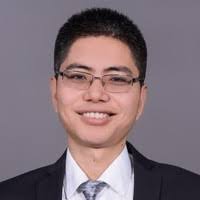 |
Title(T/S VII): An introduction to the intelligent customer services and digital human beings of DAMO Academy of Alibaba Group
Date/Time: August 30, 2022, 7:00pm-8:30m, China Time (Check your local time here)
Speaker: Dr. Xiaolong Li, Damo Academy of Alibaba Group
Host: Qi Ye (ZJU)
Abstract: In this talk I will give a general introduction to two important businesses driven by the advanced AI technologies developed in DAMO Academy of Alibaba Goup. First, the intelligent customer services called AliMe, incubated since 2015 from the internal challenges of quickly increased customer requests and problems due to the explosive growth of e-commerce businesses. Riding the wave of deep learning and especially the significant progresses in NLP, Speech, Machine Learning and Computer Vision since 2010s, AliMe developed a full set of intelligent abilities and products including Question Answer Robot, telephone-based IVR Robot, Vision Question Answer(VQA), Dialog Studio (DS) for multi-turn dialogs, table-based Question Answer (TableQA), Human Agent assistant, etc., which have helped Alibaba as wells as many other enterprises to tremendously improve the efficiency and quality of customer services. I will introduce three application categories and their respective technologies of Alime including Data Analytics Robots (Data Alime), E-Commerce Store Robots(Taobao Store Alime), and Cloud based Alime (for all the enterprises on the cloud). Second, Digital Human Being is another product we incubated since 2019 in DAMO Academy to create more immersive human-computer interaction experience with multi-modality AI technologies including dialog, speech, 2D and 3D visions, etc. I will describe the recent progresses in DAMO's digital human being technologies such as open-domain dialog with emotions and memories, multi-style emotional text-to-speech, speech and text to action (STTA), etc., as well as the broad range of possible applications enabled by those technologies.
Speaker Homepage: https://sites.google.com/site/xiaolongbruceli/
|
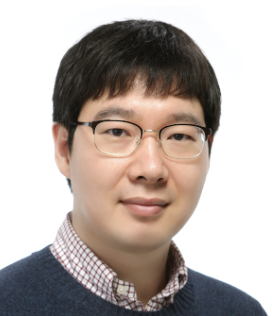 |
Title(T/S V): Cyber Meets Physical: Cross-Domain Fuzzing for Autonomous Vehicle Security
Date/Time: August 30, 2022, 9:00am-10:30am, China Time (Check your local time here)
Speaker: Prof. Chung Hwan Kim, University of Texas at Dallas
Host: Chengcheng Zhao (ZJU)
Abstract:
Autonomous vehicles (AVs), such as drones and self-driving cars, are a type of cyber-physical systems for automated transportation and missions. With their increasing adoption, AVs are facing threats of cyber and cyber-physical attacks that exploit their attack surfaces. Although many AVs are critical to human safety and the environment, it is difficult to make them secure against such attacks due to new challenges that are not addressable by traditional approaches. Many of these challenges originate from a semantic gap between cyber and physical domains in which AV systems operate.
In this talk, I will introduce my recent work that bridges the gap to discover and eliminate security vulnerabilities in AV systems. Specifically, I will introduce two fuzz testing (fuzzing) tools that automatically explore the input spaces of (1) drone control systems and (2) self-driving car systems, respectively, to detect hidden vulnerabilities that attackers may exploit to cause critical accidents. I will show how our fuzzing tools (in the cyber domain) generate sensor inputs and monitor vehicle operations (in the physical domain), and discuss unique challenges that we addressed while building these mechanisms. Using our tools, we have discovered over 100 new bugs in popular drone control and self-driving car systems and contributed to the elimination of the bugs for the security and safety of the AV systems.
Speaker Homepage: https://chungkim.gitlab.io/
|
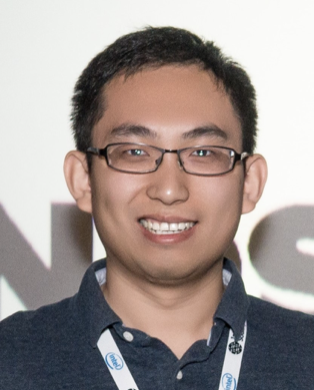 |
Title(T/S III): On the Semantic AI Security in CPS: The Case of Autonomous Driving
Date/Time: August 30, 2022, 10:30am-12:00am, China Time (Check your local time here)
Speaker: Prof. Alfred Chen , University of California, Irvine
Host: Chengcheng Zhao (ZJU)
Abstract: Recent years have witnessed a global phenomenon in the real-world development, testing, deployment, and commercialization of AI-enabled Cyber-Physical Systems (CPSs) such as autonomous driving cars, drones, industrial and home robots. These systems are rapidly revolutionizing a wide range of industries today, from transportation, retail, and logistics (e.g., robo-taxi, autonomous truck, delivery drones/robots), to domotics, manufacturing, construction, and healthcare. In such systems, the AI stacks are in charge of highly safety- and mission-critical decision-making processes such as obstacle avoidance and lane-keeping, which makes their security more critical than ever. Meanwhile, since these AI algorithms are only components of the entire CPS system enclosing them, their security issues are only meaningful when studied with direct integration of the semantic CPS problem context, which forms what we call the “semantic AI security” problem space and introduces various new AI security research challenges.
In this talk, I will focus on our recent efforts on the semantic AI security in one of the most safety-critical and fastest-growing AI-enabled CPS today, Autonomous Driving (AD) systems. Specifically, we performed the first security analysis on a wide range of critical AI components in industry-grade AD systems such as 3D perception, sensor fusion, lane detection, localization, prediction, and planning, and in this talk I will describe our key findings and also how we address the corresponding semantic AI security research challenges. I will conclude with a recent systemization of knowledge effort we performed for this growing research space, with a specific emphasis on the most critical scientific gap we observed and our solution proposal.
Speaker Homepage: https://www.ics.uci.edu/~alfchen/
|
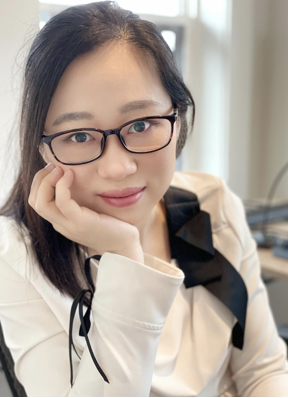 |
Title(T/S IV): Building Safe and Correct Autonomous Systems with Neural Certificates
Date/Time: August 31, 2022, 8:00am-9:30am, China Time (Check your local time here)
Speaker: Prof. Chuchu Fan, Massachusetts Institute of Technology
Host: Chengcheng Zhao (ZJU)
Abstract: The introduction of machine learning (ML) and artificial intelligence (AI) creates unprecedented opportunities for achieving full autonomy. However, learning-based methods in building autonomous systems can be extremely brittle in practice and are not designed to be verifiable. In recent years, new techniques have emerged to provide these guarantees by learning certificates alongside control policies — these certificates provide concise, data-driven proofs that guarantee the safety and stability of the learned control system. These methods not only allow the user to verify the safety of a learned controller but also provide supervision during training, allowing safety and stability requirements to influence the training process itself. In this talk, I will provide an overview of this rapidly developing field of certificate learning. We hope that this talk will serve as an accessible introduction to the theory and practice of certificate learning, both to those who wish to apply these tools to practical robotics problems and to those who wish to dive more deeply into the theory of learning for control.
Speaker Homepage: https://chuchu.mit.edu/
|
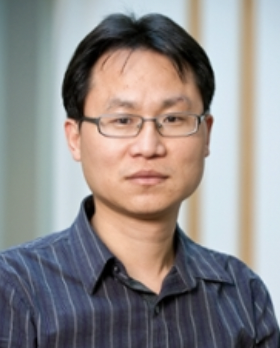 |
Title(T/S V): SODA: A Generic Online Detection Framework for Smart Contracts
Date/Time: August 31, 2022, 9:30am-11:00am, China Time (Check your local time here)
Speaker: Prof. Xiaodong Lin, University of Guelph
Host: Chengcheng Zhao (ZJU)
Abstract: Smart contracts have become lucrative and profitable targets for attackers because they can hold a great amount of money. Although there are already many studies to discover the vulnerabilities in smart contracts, they can neither guarantee discovering all vulnerabilities nor protect the deployed smart contracts against the attacks, because they rely on offline analysis. In this talk, I will introduce a novel generic online detection framework named SODA for smart contracts on any blockchains that support Ethereum virtual machine (EVM). SODA distinguishes itself from existing online approaches through its capability, efficiency, compatibility and most importantly, good extensibility. Based on SODA, 8 detection apps are developed to detect the attacks exploiting major vulnerabilities in smart contracts, and we have also integrated SODA (including all apps) into 3 popular blockchains: Ethereum, Expanse and Wanchain. The extensive experimental results demonstrate the effectiveness and efficiency of SODA and our detection apps.
Speaker Homepage: https://socs.uoguelph.ca/~xlin08/
|
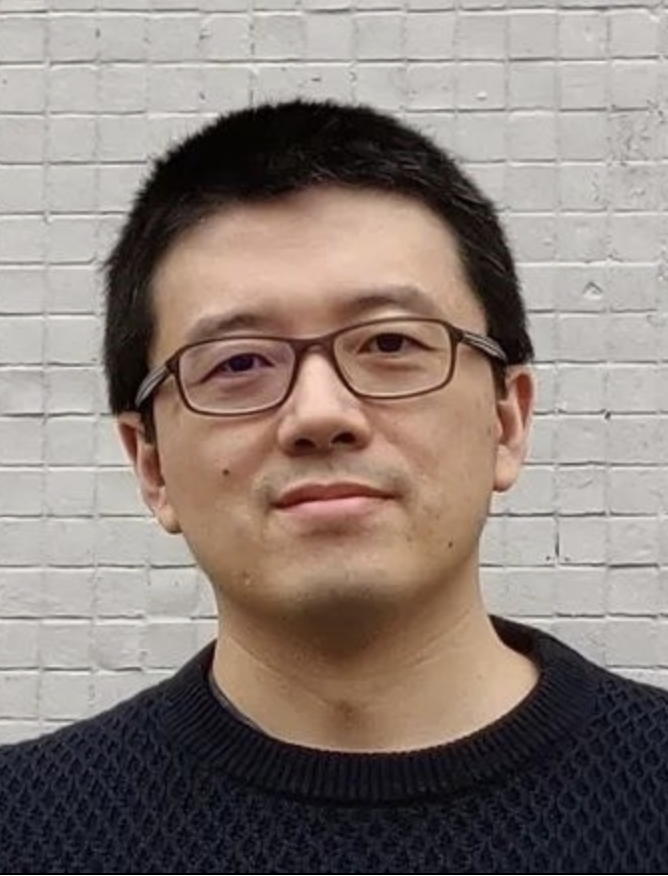 |
Title(T/S VI): Learning to Optimize
Date/Time: September 1, 2022, 9:00am-10:30am, China Time (Check your local time here)
Speaker: Prof. Wotao Yin, Alibaba Group
Host: Jinming Xu (ZJU)
Abstract: Learning to Optimize(L2O,也叫“机器学习辅助的优化”)是一种生成或改进优传统化优化算法的方法。 由此产生的新算法通常能够有效地解决一类相似的优化问题。 L2O在信号处理、图像处理等逆问题、整数和组合优化、最优控制等方面的应用取得了可喜的进展,并在许多单项问题上取得了显着的成功。 本演讲介绍了 L2O 的背景和动机,并简要概述了最近出现的不同类型的 L2O 方法,包括深度神经网络模型、基于传统优化方法的模型以及将它们结合起来的各种方法。我们将讨论如何训练参数并确保正确的收敛结果。
Speaker Homepage: https://wotaoyin.mathopt.com/
|
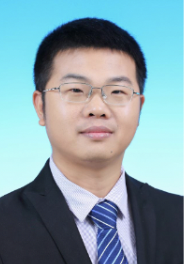 |
Title(T/S VII): 集群系统协同控制理论及在飞行器集群中的应用
Date/Time: September 1, 2022, 14:30pm-16:00pm, China Time
Speaker: Prof. Xiwang Dong 董希旺, Beihang University
Host: Jinming Xu (ZJU)
Abstract: 集群智能是新一代人工智能的重要研究领域。飞行器是集群系统中的典型对象,在军事及民用领域都有着广阔的应用前景。协同控制是集群系统智能涌现的保障和途径。以飞行器集群为代表的集群系统具有大规模性、开放性、高动态性及强鲁棒性等典型应用特征。这些特征使得针对集群系统协同控制的相关算法能够分布式实现。本报告主要针对集群系统协同控制中的分布式时变编队控制技术、编队跟踪控制技术及编队-合围控制技术进行分别介绍,并结合在无人机集群上的系列飞行试验对所提出技术的有效性进行演示验证,最后以所参加的空军“无人争锋”智能无人机集群系统挑战赛密集编队穿越竞速的比赛为例进行应用展示,并对未来的可能发展方向进行概述。
Speaker Homepage: http://shi.buaa.edu.cn/dongxiwang
|
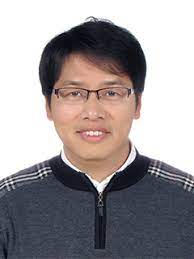 |
Title(T/S VII): A Review on Alternating Direction Method of Multipliers
Date/Time: September 2, 2022, 9:00am-10:30am, China Time
Speaker: Prof. Zhouchen Lin, Peking University
Host: Jinming Xu (ZJU)
Abstract: In recent years, Alternating Direction Method of Multipliers (ADMM) has regained significant interest due to its successful applications in machine learning and communication. In this talk, I will review some representative ADMM methods for different kinds of optimization problems: convex, nonconvex, stochastic, distributed and learning-based, to give the audience an overall picture of the development on this important optimization algorithm.
Speaker Homepage: https://zhouchenlin.github.io/
|
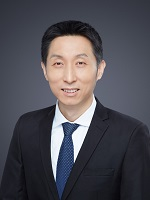 |
Title(T/S VII): 数据-知识混合驱动的无人系统协同感知,优化与控制
Date/Time: September 2, 2022, 14:30pm-16:00pm, China Time
Speaker: Prof. Hao Fang, Beijing Institute of Technology
Host: Wenchao Meng (ZJU)
Abstract: 随着无人机/无人车等无人系统的大规模应用,黑暗、狭窄、GPS拒止、严格时序-空间-信息约束等挑战性场景给传统的多机器人协同技术带来极大挑战。本报告在简要回顾现有多机器人协同技术的基础上,针对实际协同任务中的多种挑战性场景,从基于深度学习的视觉SLAM,信号时序逻辑约束下的可信运动规划,强约束下的分布式在线协同优化控制等方面分别介绍了数据-知识混合驱动的无人系统协同感知,优化与控制的最新研究进展,分析了数据-知识混合驱动的技术内涵,凝练出制约其技术突破的若干核心关键问题,并给出具有创新性的解决之道。最后对多机器人协同感知、规划与控制的发展趋势做出预测,以期对相关研究起到借鉴和引导作用。
Speaker Homepage: https://ac.bit.edu.cn/szdw/dsmd/bssds/f8ff14e570d240bfb94c0459ce6f02fa.htm
|
Way of Teaching
Schedule
Week one ( Aug 22- Aug 26, 2022 , Tencent (腾讯会议):322-8368-1732 )
| Time | Monday (Aug 22) | Tuesday(Aug 23) | Wednesday(Aug 24) | Thursday(Aug 25) | Friday(Aug 26) |
9.00 am - 12.00 am
(GMT+8) | Lecture I
面向SLAM的机器学习开源包介绍
Speaker
王晨(Chen Wang)
CMU
(卡内基梅隆大学) | Lecture III
无人机路径规划和集群技术
Speaker
高飞 (Fei Gao)
Zhejiang University
(浙江大学) | Lecture V
混合现实基础
Speaker
叶琦 (Qi Ye)
Zhejiang University
(浙江大学) | Lecture VII
零阶优化/强化学习基础
Speaker
唐聿劼 (Yujie Tang)
Peking Univesity
(北京大学) | Lecture IX
多智能体优化基础
Speaker
徐金明 (Jinming Xu)
Zhejiang University
(浙江大学) |
2.30 pm - 5.30 pm
(GMT+8) | Lecture II
SLAM技术发展历史及研究现状
改为 21(周日)下午
Speaker
李亮 (Liang Li)
Zhejiang University
(浙江大学) | Lecture IV
无人机自主导航控制
改为 22(周一)下午
Speaker
李硕 (Shuo Li)
Zhejiang University
(浙江大学) | Lecture VI
无人车编队及安全基础
Speaker
赵成成 (Chengcheng Zhao)
Zhejiang University
(浙江大学) | Lecture VIII
分布式机器学习基础
Speaker
林涛 (Tao Lin)
EPFL & Westlake University
(洛桑联邦理工 & 西湖大学) | |
|
|
Week Two ( Aug 29-Sep 02, 2022 , ZOOM Meeting No.:97200860447 (passcode: nesc2022) ))*
| Time | Monday (Aug 29) | Tuesday(Aug 30) | Wednesday(Aug 31) | Thursday(Sep 1) | Friday(Sep 2) |
8.00 am - 12.00 am
(GMT+8) | T/S I( Rescheduled to Friday )
Towards Robust Localization and Mapping in Challenging Conditions
Speaker
Prof. Sebastian Scherer
CMU
(卡内基梅隆大学) | T/S III( 9:00am-10:30am)
Cyber Meets Physical: Cross-Domain Fuzzing for Autonomous Vehicle Security
Speaker
Prof. Chung Hwan Kim
University of Texas at Dallas
T/S IV( 10:30am-12:00am)
On the Semantic AI Security in CPS: The Case of Autonomous Driving
Speaker
Prof. Alfred Chen
University of California, Irvine | T/S VI( 8:00am-9:30am)
Building Safe and Correct Autonomous Systems with Neural Certificates
Speaker
Prof. Chuchu Fan
Massachusetts Institute of Technology
T/S VII( 9:30am-11:00am)
SODA: A Generic Online Detection Framework for Smart Contracts
Speaker
Prof. Xiaodong Lin
University of Guelph | T/S VIII( 9:00am-10:30am)
Learning to Optimize
Speaker
Prof. Wotao Yin
Alibaba Group
(阿里巴巴达摩院) | T/S XI( 9:00am-10:30am)
A Review on Alternating Direction Method of Multipliers
Speaker
Prof. Zhouchen Lin
Peking University
(北京大学) |
2.30 pm - 5.30 pm
(GMT+8) | T/S II(TBD)
TBD
Speaker
Prof. Jonas Sjoberg
Chalmers University of Technology | | | T/S IX( 2:30pm-4:00pm)
集群系统协同控制理论及在飞行器集群中的应用
Speaker
Prof. Xiwang Dong
Beihang University
(北京航空航天大学) | T/S XII( 2:30pm-4:00pm)
数据-知识混合驱动的无人系统协同感知,优化与控制
Speaker
Prof. Hao Fang
Beijing Institute of Technology
(北京理工大学) |
7.00 pm - 10.00 pm
(GMT+8) | | T/S V( 7:00pm-8:30pm)
An introduction to the intelligent customer services and digital human beings of DAMO Academy of Alibaba Group
Speaker
Dr. 李小龙 (Xiaolong Li)
Damo Academy of Alibaba Group
(阿里巴巴达摩院) | | T/S X( 7:00pm-8:30pm)
Swarms of tiny autonomous drones
Speaker
Prof. Guido de Croon
Delft University of Technology | T/S I( 8:30pm-10:00pm )
Towards Robust Localization and Mapping in Challenging Conditions
Speaker
Prof. Sebastian Scherer
CMU
(卡内基梅隆大学) |
|
Registration and Deadlines
Registration:
Welcome to register (free) this event via the following link
https://jinshuju.net/f/lj2icY
Deadlines:
Pre-registration: 18 Aug 2022;
Email Notification: 20 Aug 2022.
Organizers and Contact
This event is organized by Jinming Xu (ZJU), Chengcheng Zhao (ZJU), Liang Li (ZJU), Qi Ye (ZJU), Shuo Li (ZJU), Wenchao Meng (ZJU), and Chen Wang (CMU) with the advisory board member Jiming Chen (ZJU), Peng Cheng (ZJU) and Li Chai (ZJU). For inquiries, please write to jimmyxu AT zju.edu.cn.
|











